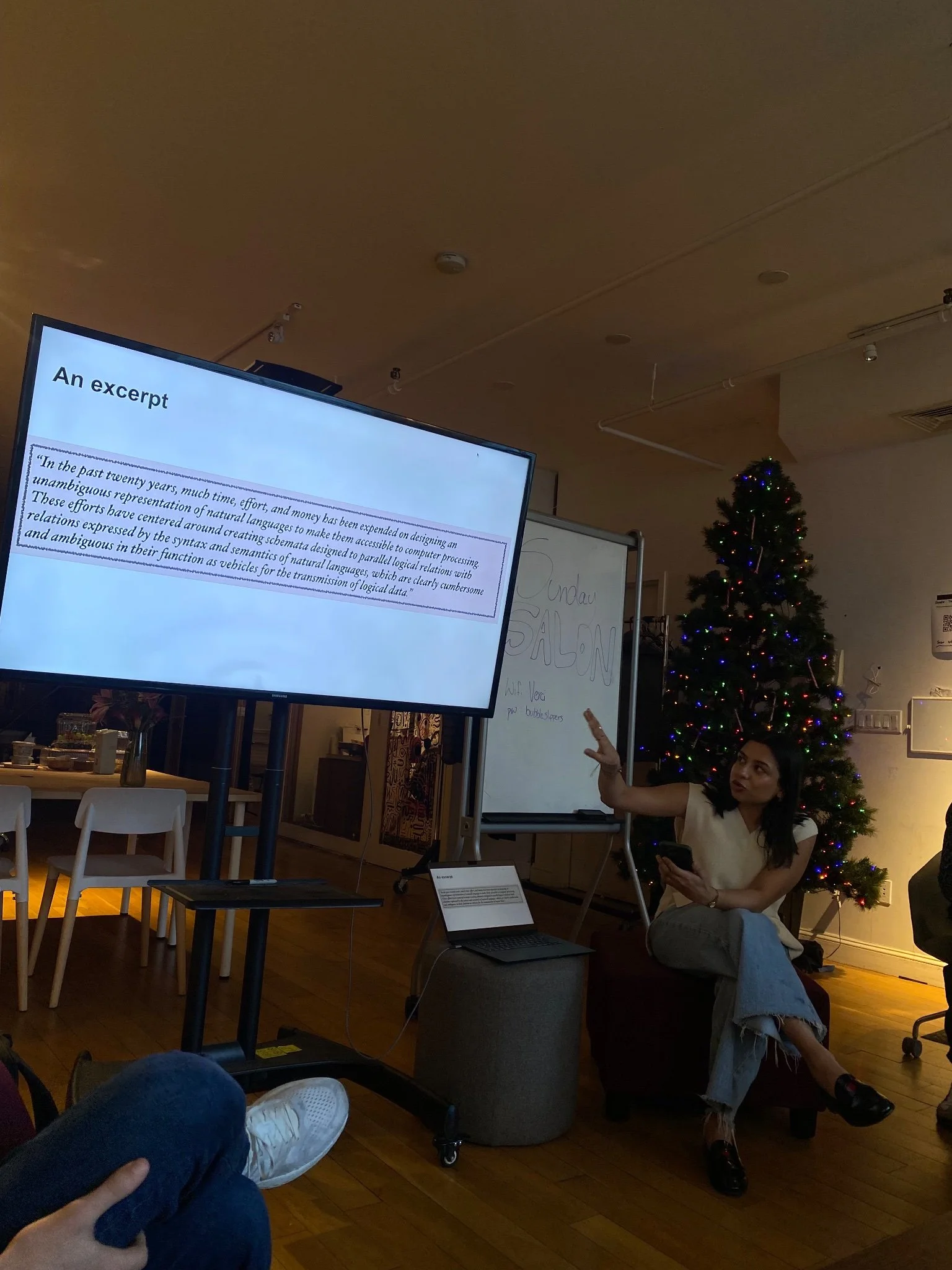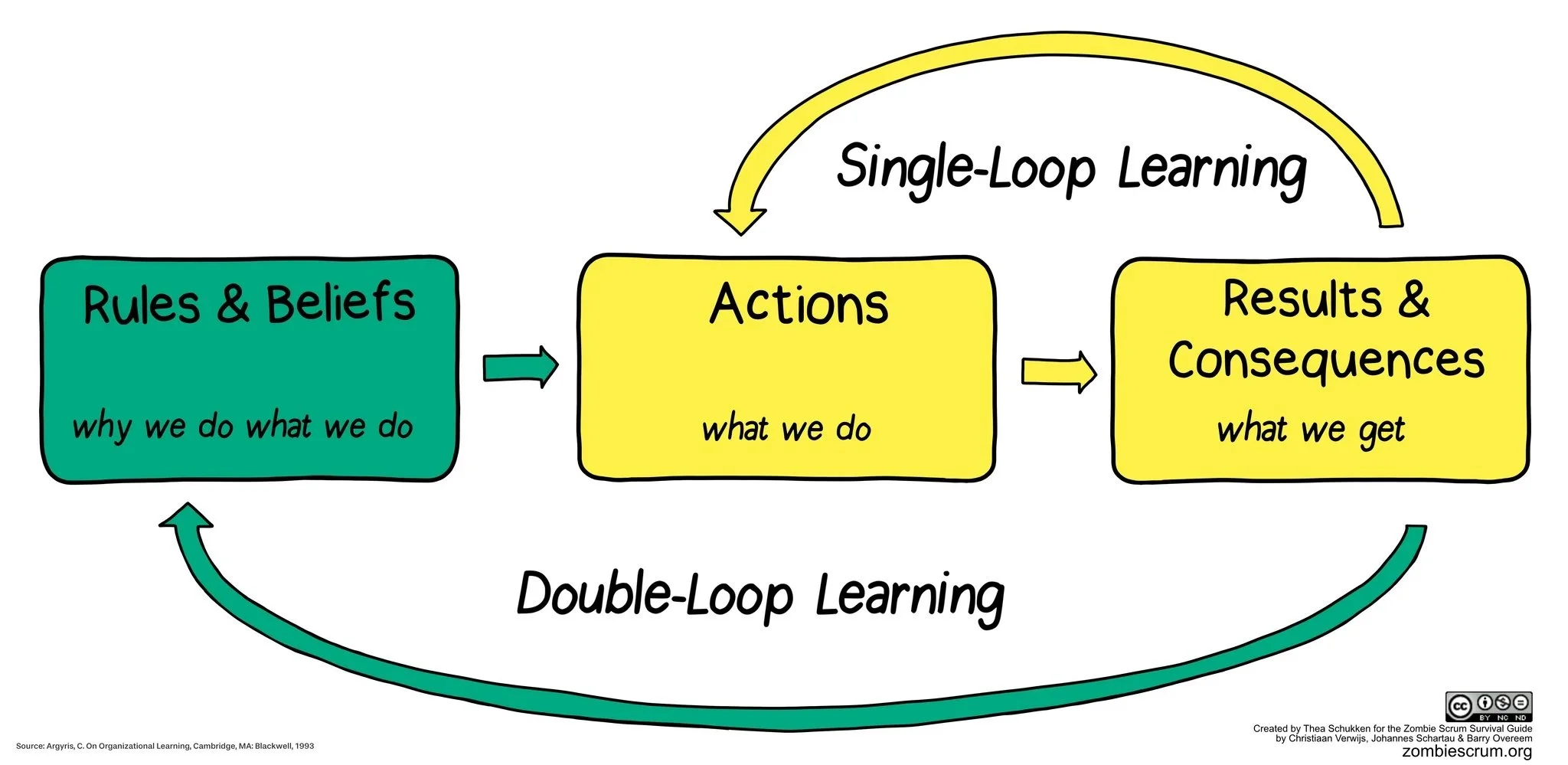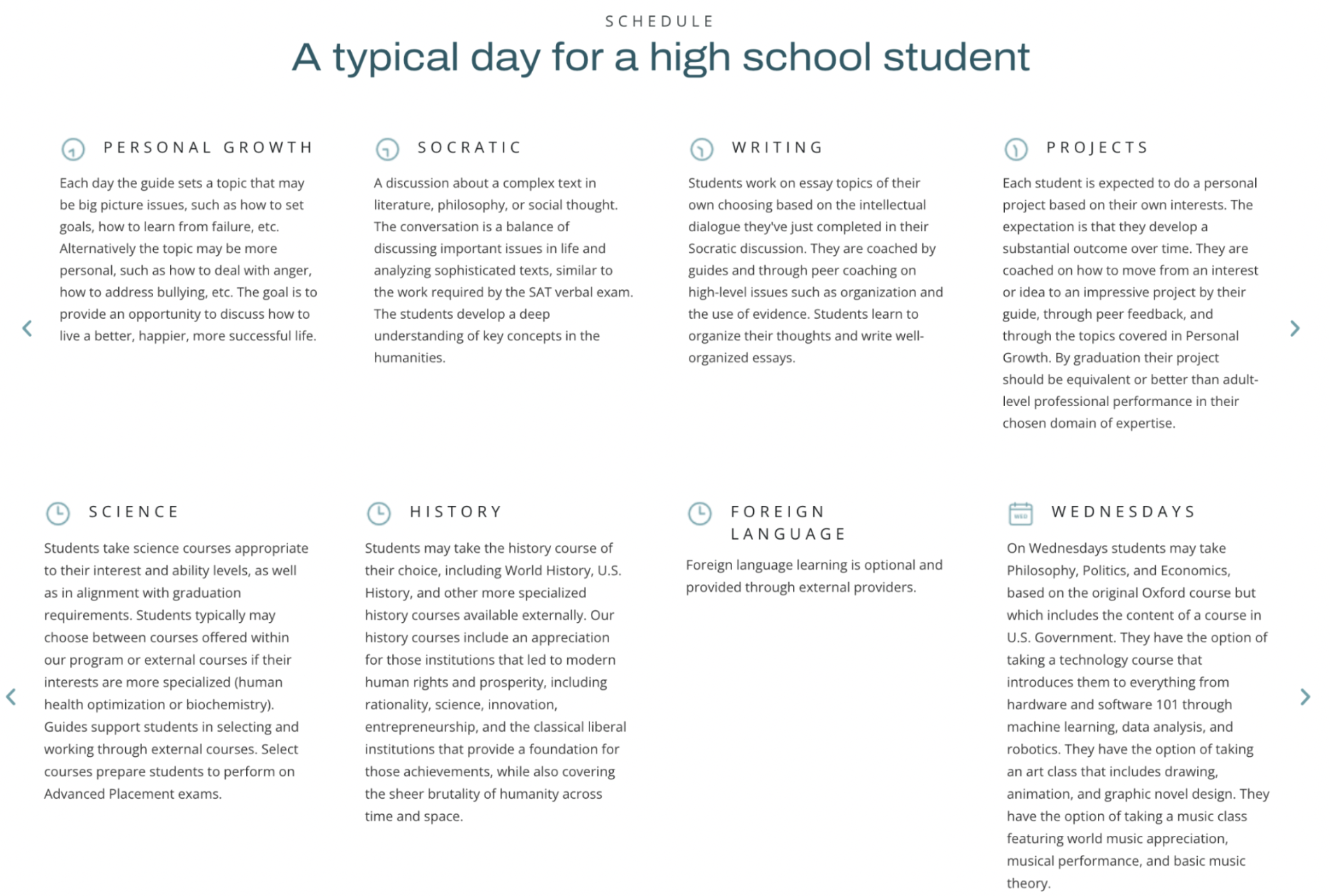04/25/2024
Socractic Salons
bring back public forum intuitive learning
A friend of mine realized that so many of our friends have weird, niche, fun interests that we only get to hear about after ~ two beers.
“No way, man! I had no idea you edit wikipedia articles in your free time!”
There had to be a better way. A safe space where intellectual curiosities could find full expression and indulgence without the need for liquid courage. A space where explorations about frameworks for accessible, open-access information could unfold without reservation or judgment.
A space that allows for a pace of learning that is not influenced by capitalism.
Because this is stuff we want to celebrate and nurture. We do not want to go out to have a couple of beers and go home and forget all about it. We especially do not want our time together to be about escape from our lives. We want our social circles to be generative and meaningful.
And hence, the Sunday Salon was born.
17th century painting Réunion de dames by French artist, Abraham Bosse. Photo courtesy of Wikimedia Commons.
The idea is inspired by intellectual social gatherings during the 17th and 18th centuries, known as salons, which flourished in private homes across Europe, hosted by prominent women called salonnières. These events were forums for lively discussions and exchange of ideas, where participants engaged in stimulating conversation purely out of a desire for knowledge and cross-pollination of thoughts, as well as for the pleasure of meeting new people. This is where the popularization of Newtonian physics through discussions led by Madame du Châtelet emerged. Where Rousseau and Diderot debated and championed Enlightenment ideals in the salon of Madame Geoffrin. Where the gatherings hosted by Madame de Rambouillet fostered the emergence of Rococo artistic style. Salons also served as platforms for advocating social and political reform, exemplified by figures like Madame Roland who used her salon to promote revolutionary ideals, contributing to the intellectual ferment that shaped the cultural landscape of the time.
Photo courtesy of this article: Loss of Purva Paksha tradition and its consequences.
The tradition of salons extends beyond 17th and 18th century Europe. In ancient Indian society, gatherings known as "sabhas" or "sammelans" served as platforms for intellectual discourse and exchange of ideas. These assemblies, often hosted by kings, scholars, or wealthy patrons, attracted poets, philosophers, and scholars from diverse backgrounds. Notably, these gatherings embraced the practice of "purva paksha," wherein participants engaged in rigorous debate by thoroughly understanding and articulating the arguments of opposing viewpoints before presenting their own. This approach fostered critical thinking, empathy, and intellectual humility, laying the groundwork for constructive dialogue and the advancement of knowledge. Just as European salons provided spaces for the exploration of new ideas and perspectives, ancient Indian sabhas facilitated intellectual exchanges that enriched the cultural and philosophical landscape of the time.
In our 21st-century iteration, it looks something like this:
Hannah Gershowitz presenting on cheese!
We send out a private, invite-only partiful link to people who we think are interesting (move toward interestingness). We try to invite someone new each time. People RSVP and propose ideas for 15-minute lighting talks, which usually follow a discussion. The day of, we meet at a creative studio in NYC, a 3rd space of sorts, where one of us holds a membership and somehow persuades the managers to allow ten guests. The goal is similar to what’s described above: foster the necessary conditions for the emergence of new ideas.
The whole thing follows the socratic method – four or five of us come prepared with a presentation/talk on anything that is of interest to us, topics range from nuclear energy to cheese. Yes, cheese. We probe each other with questions to elicit deeper insights, challenge assumptions, and foster critical thinking.
Me presenting on Sanskrit and AI based on a piece I’d previously written on the topic.
With cheese, we explored current geopolitical contexts surrounding AgTech / pasteurization that stemmed from one single question: “Why is cheese so bad in America?”
I’ve personally presented an exploration on a NASA scientist’s 1985 paper surrounding knowledge representation in sanskrit and AI which led to meeting people who study Sanskrit for fun just like me. Natasha is now a good friend.
The point is to try to question ideas from a place of first principles thinking. We try to learn by questioning, not only what we do, but why we do what we do (double-loop learning).
Intuitive learning and adult extracurriculars
The salons both in the 17th century and our modern version, foster an environment conducive to intuitive learning. Curiosity-driven rabbit holes, unimpeded by rigid structures of predetermined outcomes. Participants engage in dynamic discussions, driven by a shared desire for knowledge and exploration. Here, ideas are not merely exchanged but allowed to germinate and evolve organically, guided by the intuitive nudges of inquiry and discovery.
Salons also allow adults to engage in extracurricular intellectual pursuits beyond formal education, without the pressure or constraints of career development or capitalism-driven pursuits of gotta-turn-my-hobbies-into-side-hustles, where everything needs to make money. Discourse for the sake of deeper understanding by gathering in these social spheres also helps question assumptions and sort of conduct a ‘5 whys’ technique as a society. There is something to say here about social contracts and our collective cohesive intelligence, whereby questioning our existing mental models and frameworks help bring subjectivity to the forefront.
Traditional learning often forces a sense of objectivity – teaching facts, theories, and methods as objective truth. There is often little room to explore the subjective human experiences and perspectives that shape how knowledge is constructed and understood. A great example of open-ended, curiosity-driven learning I have seen is through an online school called The Socratic Experience, where a focus on purpose-driven education is emphasized. Through open dialogue, collaborative inquiry, and the free flow of ideas, salons spark moments of insight and illumination, generating a deep and visceral understanding that transcends traditional modes of learning.
This is a typical day for a high school student at The Socratic Experience.
I personally would have killed to be able to go to a school like this. My curiosity was destroyed in classes with rigid curricula and focus on achievement of certain grades to be able to get into certain university programs. I doubt I would have chosen biomedical science as a major in undergrad had I experienced learning without an outcome-focused curriculum. I suspect I would have been a philosophy major.
I speculate that learning without predetermined outcomes also allows for more mental freedom while choosing careers. I had no idea that not being a doctor or a PhD scientist was an option for me. Funnily enough, accidentally founding an ed-tech startup at 19 because I followed my curiosity surrounding equitable access to education is the reason why I am where I am today.
Another contrast – let’s look at research studies, where individual lived experiences are often homogenized for the sake of data analysis and visualization. Stories are buried under themes of qualitative analyses and are not given the weight they deserve. Salons provide a forum where subjective human experiences are welcomed, and weighted differently, and where objectivity is not automatically assumed.
Another photo from one of our modern day salons :)
This does not negate the importance of objectivity in learning. Salons just demonstrate that subjectivity should not be ignored either. Our individual contexts, backgrounds, and mindsets ultimately influence how we perceive, interpret and apply objective knowledge. Bringing subjectivity to the forefront allows these influences to be identified and accounted for.
Salons create an environment where both objectivity and subjectivity have a place in the pursuit of deeper understanding. While objective facts and theories are discussed, the subjective perspectives that shape human reasoning are also valued and dissected through discourse.
This balance and interplay contributes to more holistic cohesive intelligence as a society.
All this to say –
Let's bring back salons!
–
My friend, the social conductor who created Sunday Salons for our circle is Shoumik Dabir. Forever grateful for his proactivity, leadership, and stewardship in a world where people are obsessed with looking nonchalant and aloof, projecting an air of contrived disinterest that masks genuine curiosity and enthusiasm.
S/o to Naman, Abhilasha, and Kora for reading/editing drafts of this essay.
S/o to my family of contributors at Blasé Raire who helped shape many ideas in this essay, one of whom I am working on a much longer piece about the future of learning with. Thanks Amber for being the best thought partner!
I write white papers, primers, think-pieces, reflective essays + send personal updates in my newsletter. Feel free to check out other technical pieces and essays.
Please subscribe!






